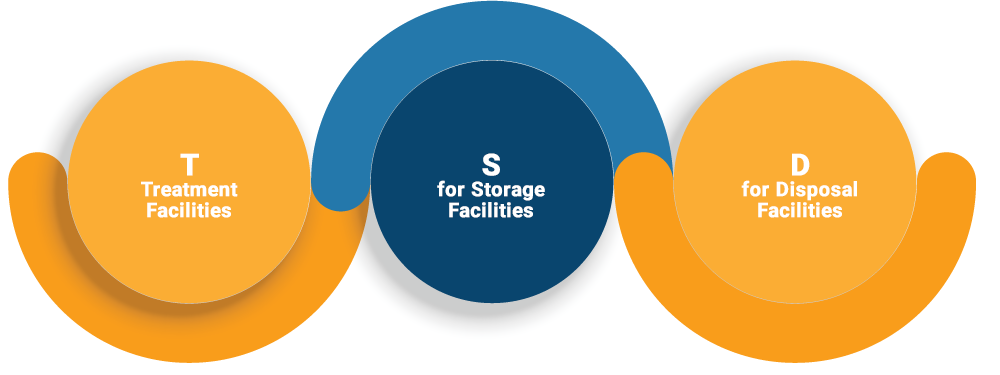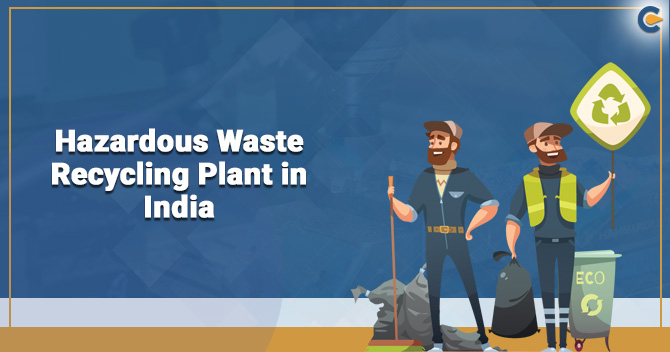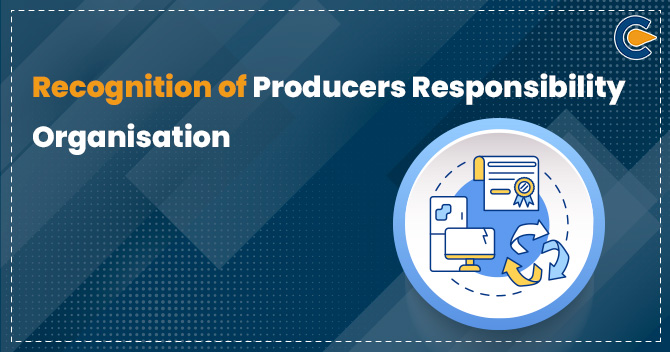Due to the development of the industrial progress, the consequence we can see is the generation of huge amount of waste. Therefore, it has become a matter of international concern to have an efficient waste management and countries have set up vigorous management regimes for regulating waste for the purpose of balancing the object of environment sustainability and development. The National Environment Policy, 2006 in India, has suggested measures for controlling different forms of environmental pollution and also emphasise on the requirement for collection of the waste and treatment systems for recycling those wastes and framing measures for disposal of residues which must be environmentally safe. In this article, we will learn on how to setup hazardous waste recycling plant in India.
Regulatory Regime for Waste Management
In India, the waste management is governed by different sub-ordinate legislations and the Ministry of Forest and Climate Change, Ministry of Environment, Government of India (“MoEF”) in cooperation with State Pollution Control Boards of various states (“SPCB”) are managing the scope of waste management regulations.
The doctrine of Indian waste management rules are established on the “sustainable development”, “precaution” principles which are the basic measures that should be taken to avoid degradation of environment and hazards and also the “polluter pays” principle in which the polluter is liable for the costs for causing any damage and or harm to environment by his act. These principles are an essential part of Indian environmental law as has been observed in various decisions by the Supreme Court of India[1].
This principle makes it mandatory for the industrial units and the companies to operate in an environmentally responsible and accountable manner and if in case they have disrupted the environment then they shall be responsible to restore the balance.
Looking at the increased level of generation of waste as a outcome of the development, there are various legislations for regulating the method of disposal and ways to deal with the generated waste as are made by MoEF that is given under the umbrella law of Environment Protection Act, 1986 (“EPA”).
What Hazardous Waste Management Rule Says?
This rule under Hazardous Waste (Management, Handling and Trans – boundary Movement) Rules, 2016 provides with ensuring safe handling, processing, generation, package, treatment, transportation, use, storage, collection, reprocessing, and offering for sale, disposal and destruction of Waste.
The organization or any person who is involved in the use, collection, pre-processing, processing, packaging, storage, treatment, transportation, utilization, co-processing, recycle and offering for sale, transfer or disposal of the wastes and other hazardous substances and the different authorities that involved in the process of giving authorization for Hazardous Waste are:-
- MoEF&CC,
- CPCB,
- State/UT Govt.,
- SPCBs/PCCs,
- DGFT,
- Port Authority and Custom Authority.
What is a TSDF Facility ?
Hazardous Waste Treatment, Storage and Disposal Facilities (TSDFs) explain the treatment, reception, storage, collection, transport, and disposal of these wastes in an environmental friendly approach.


‘T’ Stands for Treatment Facilities
Treatment facilities use a range of processes like incineration or oxidation to alter the composition that contains wastes. A portion of the treatment process enable such waste in a manner that it can be reused and reclaimed in some other processes at the same time and other treatment operations will automatically reduce the waste amount.
‘S’ Stands for Storage Facilities
Storage facilities signify that it temporarily holds the wastes until such wastes are either treated or the wastes are disposed of.
‘D’ Stands for Disposal Facilities
The Disposal facility contains the wastes permanently. The disposal facility that is most commonly used is a junk pile or landfill, in cases where the wastes are disposed in constructed units that are made to protect the surface-water resources and groundwater resources.
The treatment, storage, and disposal facility (TSDF) also includes the transporter and generator in the sequence of activities involving waste management. The regulations relating to TSDFs are strict in comparison to that applied on the generators or transporters.
The regulations include unit-specific design and general facility standards together with the operating criteria. The universal facility standard that shall be available includes a good housekeeping provision for any facility that is handling the waste. These unit-specific technical requisite are so designed with the purpose to prevent exposure of these waste into the environment.
Criteria for Disposal of Hazardous Waste
The criteria for setting up for treatment of hazardous waste are that there must be adequate machinery installed in the plant to treat such Waste. It is mandatory to adopt a proper chemical, physical and biological process to treat hazardous waste in the plant.
- The disposal of the treated hazardous waste has to be done in landfill
- The landfill must be far away from the human settlement.
- The landfills must have boundaries around them.
Who Needs an Authorization for Hazardous Waste?
Person who is directly involved in generation , packaging, processing handling, collection, transportation, use, utilization, pre-processing, storage, treatment, recycling, offering for sale, recovery, disposal or transfer of the wastes shall be obligated to receive a clearance from the State Pollution Control Board.
What are the Environmental Benefits of Recycling Hazardous Waste?
Waste recycling, reuse, and reclamation can keep away from the environmental hazards for the protection of the available scarce natural resources, lessen the country’s reliance on the energy and raw materials and provide economic advantages.
There are numerous, interconnected environmental benefits we get on recycling the waste and that includes:-
- Reducing the raw material consumption,
- Reducing the pollution,
- Reducing the energy use and
- Reducing the waste volume that should be treated and then disposed of accordingly.
The processing, refining, extraction and transportation of new raw materials can have an important impact on the environment conditions. Recycling the waste would mean less soil, air, and water pollution connected with these practices.
Also, recycling can result in reducing the emissions of greenhouse gases (GHGs). Whenever wastes go through the process of recycling, then less amount of energy is required to obtain raw materials and also to manufacture and produce products. When the demand of energy decreases, less quantity of fossil fuels are burnt and then less GHGs are emitted into the environment, which can in turn reduce the impact on climate change and at the same time decrease air pollution.
Consequently, by recycling the wastes, the result is that there is less amount of waste that is sent for disposal and treatment. This would automatically mean that less need for waste incinerators and landfills, together with decrease in energy used for systems which causes less pollution.
Conclusion
The regulators have increased the focus towards the need for sustainable environment and the same is seen from the companies carrying the Corporate Social Responsibility activities which also includes mission to protect environment.
Central Pollution Control Board on getting satisfied that the applicant is using environmentally friendly technologies and is having sufficient technical capability, necessary facilities and equipment to facilitate the hazardous wastes by recycle, reprocess or reuse, may grant registration to applicant to set up hazardous waste recycling plant in India.
Read our article:Extended Producer Responsibility for the E-Waste and Plastic Waste Management











